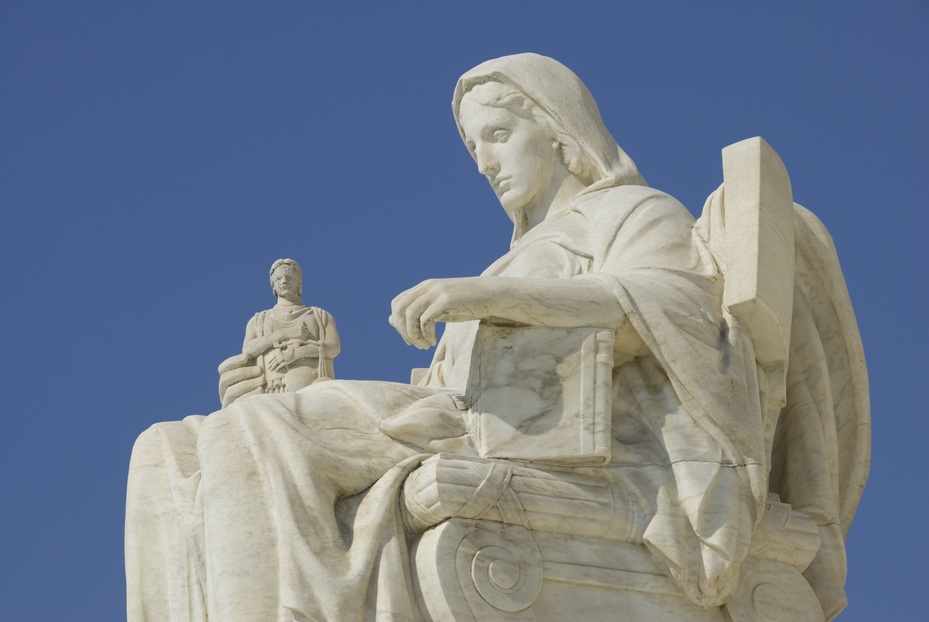On January 1, 2021, the William M. Thornberry National Defense Authorization Act of 2020 (the NDAA) became law and included in that legislation is the Anti-Money Laundering Act of 2020 (the AMLA) and amendments to the Bank Secrecy Act (BSA).
These provisions vastly expand existing anti-money laundering (AML) related requirements notably by expanding the definition of “financial institution” to include “dealers in antiquities” and in turn likely subjecting such dealers to certain reporting requirements. These changes are significant. By broadening the definition of “financial institution,” a whole new industry will soon be required to comply with this AML and countering the financing of terrorism (CFT) regulatory regime.
Expansion to dealers and participants in antiquities
In recognition of the potential risks for monetary transactions occurring in the generally unregulated high-value international antiquities industry, the AMLA expands the BSA to apply to participants in antiquities business. Specifically, the definition of “financial institution” is amended to include “a person engaged in the trade of antiquities, including an advisor, consultant, or any other person who engages as a business in the solicitation or the sale of antiquities.” This broad class thus includes not only the dealers themselves but many of the intermediaries that are often involved in the sale and purchase of these high-value items. Until rules are promulgated later this year, there are many open questions including:
- What is an “antiquity”?
- What type of persons are considered advisors, consultants or other persons engaged in the antiquities business? Does it include, for example, financial advisors, lawyers, accountants, insurers, etc.?
- Are US or foreign museums that purchase and deaccess antiquities subject to these rules?
- What does business in the antiquities mean? Will sporadic and isolated transactions by art dealers or auction houses, for example, be subject to requirement of the BSA?
What does the BSA require?
The amendments to the BSA will soon impose rigorous filing, document retention, and other programmatic requirements for covered persons and transaction in the antiquities trade. These requirements include the filling of certain reports and information with FinCen. For instance, financial institutions must file Currency Transaction Reports (“CTR”) with FinCen for each transaction involving more than US$10,000 in currency, with multiple transactions by or on behalf of the same person on the same day being treated as a single transaction.
Additionally, financial institutions may have reporting requirements triggered by suspicious activities. Some financial institutions are also required to implement AML and CFT compliance programs to guard against these concerns in a risk-based manner. While it will be up to the final rules promulgated under the AMLA to identify how much of the BSA will apply to antiquities dealers, prior rules are quite indicative. For instance, ”dealers in precious metals, precious stones, or jewels,” which industry is probably most akin to dealers in antiquities, were previously defined as “financial institutions.”
The rules provide that these dealers must comply with many of the reporting requirements and must develop an AML compliance program. An entity failing to meet these requirements, or that provides false or fraudulent information, may face serious civil and criminal penalties.
When will the amendments take effect?
Luckily, dealers in antiquities will not immediately feel the impact of the AMLA. The Secretary of the Treasury has 360 days from the enactment of the AMLA to issue rules to carry out the amendments. This amendment of the AMLA, adding dealers in antiquities to the definition of financial institution, does not take effect until the effective date of the final rules to be issued by the Secretary of the Treasury. In promulgating its regulations, the Treasury will determine exactly which of the BSA requirements will apply to this new class of financial institutions, although certain regulatory requirements such as those related to the filing of CTRs will undoubtedly apply.
The rulemaking process will take into account a number of considerations, including, but not limited to, the size and type of business to be regulated, the domestic or international geographical locations that should be targeted, and whether the business engages in the high-value trade of antiquities. Additionally, the Secretary of the Treasury may also consider whether there is a need to identify the actual purchasers of antiquities, as well as the need to identify any other persons who are dealers, advisors, consultants or otherwise engage as a business in the trade in antiquities.
Are art dealers next?
Art dealers have also fallen on Congress’s radar. The AMLA calls for a study of the facilitation of money laundering and the financing of terrorism through the trade in works of art. The study is to consider: the extent to which dealings in works of art may be an instrument for money laundering or the financing of terrorism; which markets should potentially be regulated; the interest in identifying the actual purchasers and their intermediaries; and the need to identify those in the business.
The report will be due to Congress in a year. In the meantime, those who deal with works of art should be aware that regulators are scrutinizing their industry as one that is potentially a conduit for financial crimes. Because of the vast sums of money exchanged in the art trade and seemingly no distinction between an antiquity and art object for AML purposes, it should be assumed that the BSA may be subsequently amended to include the art trade.
It will not be surprising if the US AMLA rules will be extended to art dealers; the EU Fifth Money Laundering Directive (5MLD) became effective last year for art dealers and auction houses despite fierce resistance from the art trade. Promulgation of similar rules in the US will lead to heightened data privacy and data protection concerns for those that buy and sell art.
Considerations going forward
Dealers in antiquities and those that support this industry will want to consider adopting of policies and procedures that are attentive to the money laundering and financing of terrorism risks that are present in their industry. Coupled with other tools provided for in the AMLA, such as the establishment of a new whistleblower provision, modernization of the government’s system to address AML concerns with investments in technological innovation, as well as a professed interest in cooperation and information sharing, it will be no surprise to observe more activity related to violations of money laundering and financing of terrorism regulations in the antiquities and arts industry in the coming years.




